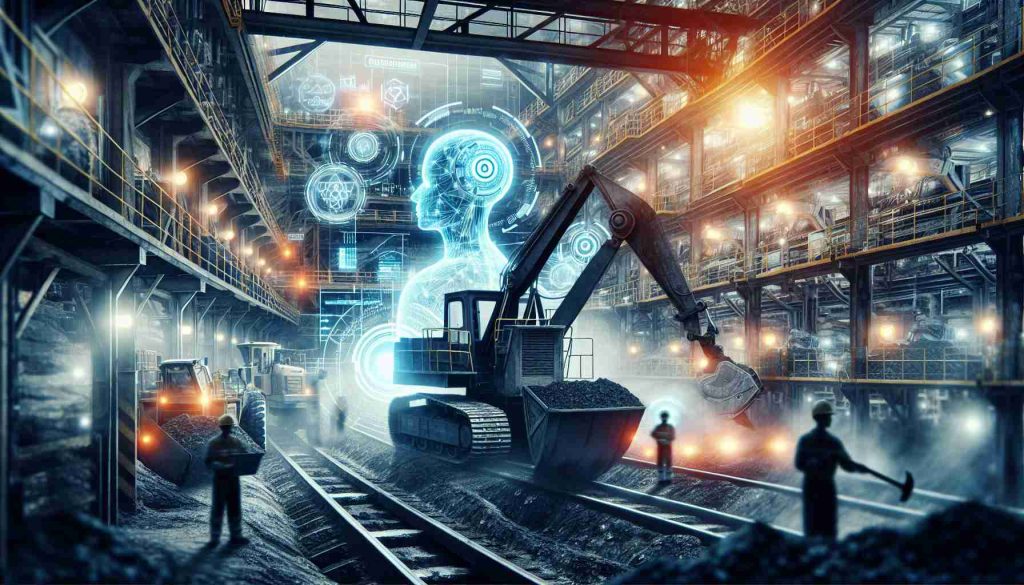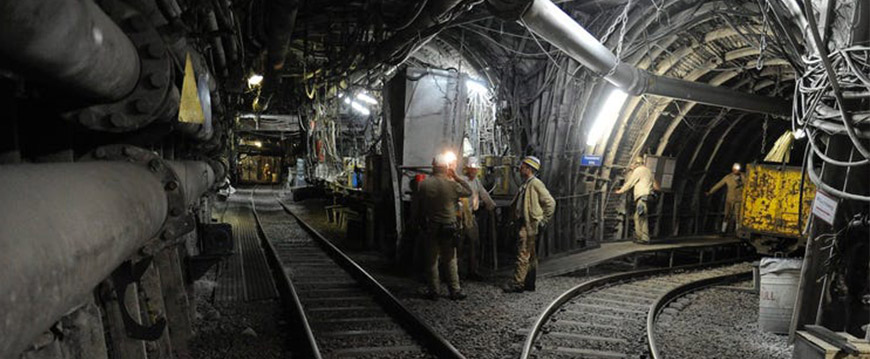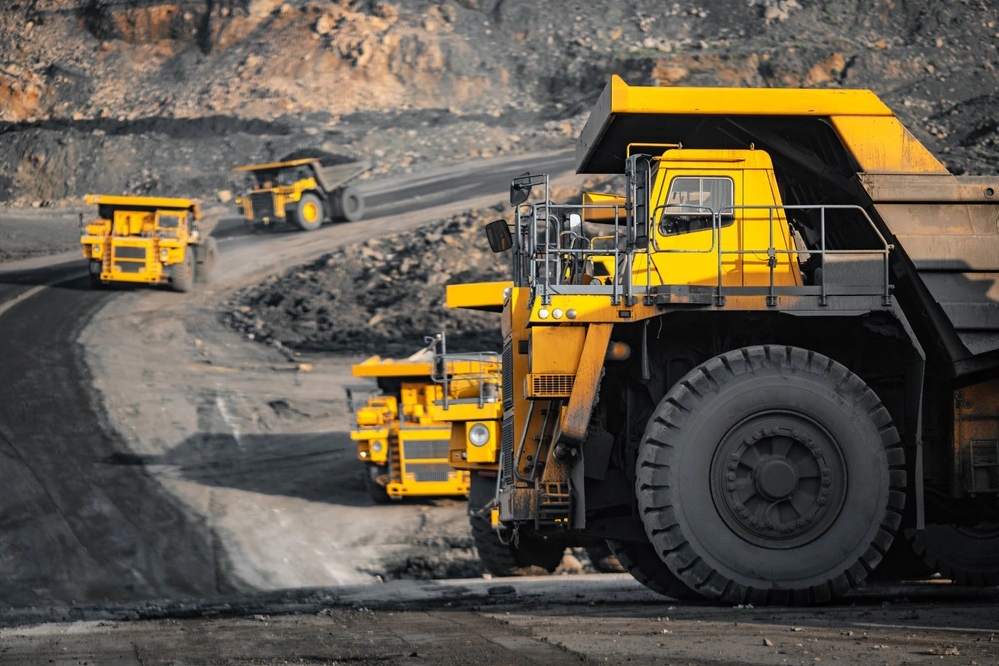Revolutionizing Coal Mining: AI Takes the Helm in China's Shanxi Province

In a striking leap forward for the coal industry, China’s Shanxi province is turning to artificial intelligence (AI) to revolutionize underground coal mining. This technological advancement is geared toward enhancing safety measures and improving overall efficiency in one of the most hazardous industries by incorporating AI-driven devices in the mining process.
AI’s role in mining starts with drilling. Through automated drill pipes equipped with AI, data and images from deep within the mines are transmitted to control centers for analysis. This method not only increases the accuracy of drilling but also significantly bolsters the safety of underground operations. For instance, the Shanxi Chengfeng Coal Industry Company, led by Chief Engineer Wen Haiming, is one of the pioneers in utilizing intelligent facilities within their mines.
Moreover, Jingying Shuzhi Technology Co has been at the forefront of implementing AI to explore and manage underground water threats, essential in preventing mine flooding. The added benefit of employing such intelligent systems is evident in the Inner Mongolia autonomous region’s Mataihao coal mine, where AI has been instrumental in optimizing transportation and energy consumption, leading to handsome savings on electricity costs.
The efficiency efforts don’t stop here; more than a hundred intelligent coal mines have been established in Shanxi, boasting an integrated industrial internet platform. This system centralizes the data from over 400 mines and supports AI development and deployment of intelligent mining solutions.
In summary, the transformation within China’s coal mining sector is impressive. With AI acting as a cornerstone for innovation in this industry, the improvements in safety, cost management, and environmental impacts mark a new era for coal mining operations, setting a global example for the integration of technology in traditional industries.
The Integration of AI in Coal Mining
The coal industry, particularly in China, is undergoing a significant transformation as it incorporates artificial intelligence (AI) to modernize and enhance operations. As the largest producer and consumer of coal, China’s move towards integrating AI in its coal mining processes stands to have a profound impact on the industry as a whole. With safety being a perennial concern in coal mining, the application of AI technologies promises to make mines safer for workers and help to reduce the environmental impact of mining operations.
Utilizing AI in coal extraction and processing improves efficiency and reduces potential hazards. For example, automated drill pipes equipped with AI sensors can better detect gas levels or geological changes in real time, which helps in avoiding accidents and improving recovery rates. The initiatives by companies such as Shanxi Chengfeng Coal Industry Company and Jingying Shuzhi Technology Co indicate a broader trend within the sector towards embracing technological innovation.
Market Forecasts and Economic Implications
The global coal mining industry is expected to undergo continued growth, with emerging economies driving the demand. However, market forecasts also depend on how environmental policies evolve globally. The introduction of AI can optimize coal production, reduce waste, and increase the overall efficiency of the energy sector. It’s expected that the use of AI in mining could also lead to more competitive pricing of coal by reducing operational costs.
Environmental and Industry Issues
Despite these advancements, the coal industry faces challenges related to environmental concerns. Coal is a significant contributor to global carbon emissions, and its use is being critically evaluated by governments and environmental organizations worldwide. The introduction of AI may help address some of these issues by improving energy efficiency and potentially leading to reductions in greenhouse gas emissions.
To further understand the dynamics of the coal mining industry and explore the latest industry news, one could visit relevant industry websites. For the latest global energy statistics and reporting, a visit to International Energy Agency (IEA) can provide insight into the coal industry’s position within the broader energy market. Similarly, for environmental and sustainability developments, one might consult the Intergovernmental Panel on Climate Change (IPCC) for research on climate impact and mitigation strategies.
As technology continues to evolve, so does the potential for AI to reshape traditional industries like coal mining. While the environmental debate around coal consumption is unlikely to abate, AI offers an avenue for the coal industry to improve its practices, increase safety and efficiency, and potentially mitigate some environmental impacts. The future of coal will depend heavily on balancing the demands of energy consumption with the imperative for environmental protection and sustainability.
-
Ensuring reliable long-distance critical signal delivery in mining applications
In mining applications, coal-carrying conveyor belts can be up to 20 km long and···
-
EBRD to Support Modernization of Kazakhstan’s Mining Sector
Kazakh Minister of Industry and Construction Kanat Sharlapayev and First Vice Pr···
-
Wide Strip Mining to Balance Efficiency and Safety in Coal Extraction
BackgroundThe current landscape of coal mining presents significant challenges w···
-
U.S. Critical Mineral Worker Shortage Hurts Competition With China
As the United States rushes to develop domestic supplies of critical minerals—th···
Exhibition address:China International Exhibition Center (CIEC)
- Ensuring reliable long-distance critical signal delivery in mining applications
- EBRD to Support Modernization of Kazakhstan’s Mining Sector
- Wide Strip Mining to Balance Efficiency and Safety in Coal Extraction
- U.S. Critical Mineral Worker Shortage Hurts Competition With China
- Mining industry welcomes government's $566m commitment to resource exploration
- Innovation heats up the mining industry






 2024 Beijing International Coal & Mining Exhibition
2024 Beijing International Coal & Mining Exhibition

